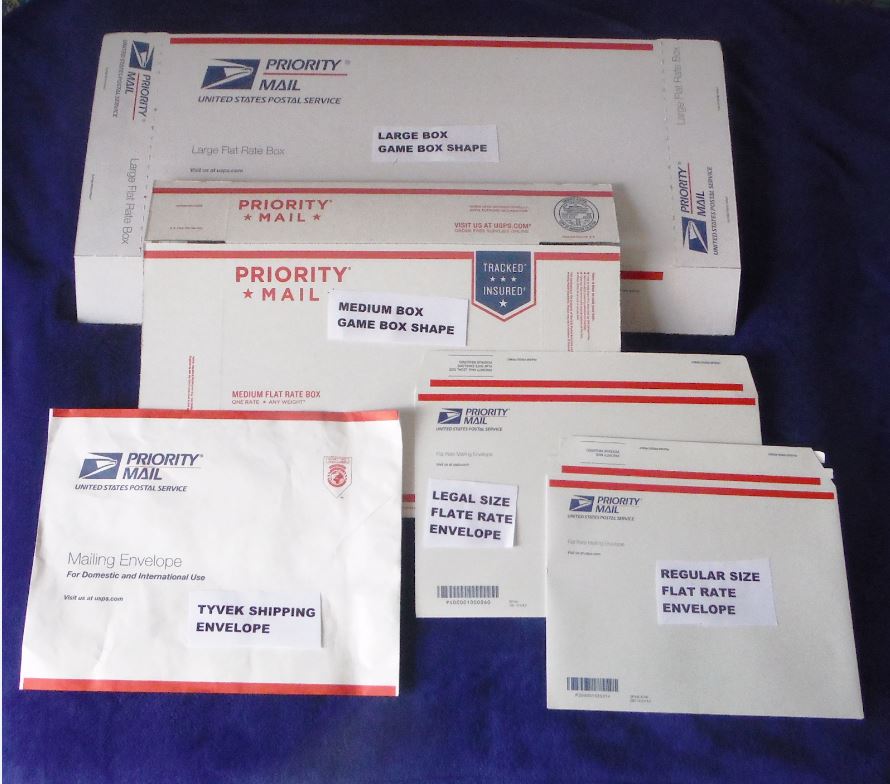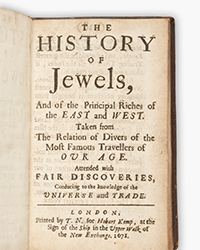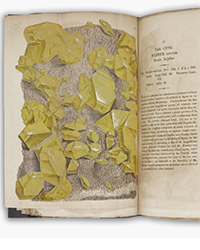After a mere 14 years as an eBay bookseller I just reached the 1,000 feedback level, and thankfully it’s all positive. I estimate that for every buyer that leaves feedback there are another ten who never comment.
Looking over the reviews I noticed “fast shipping” and “great packing” were repeatedly mentioned in customer comments. To that end here are a few tips that have come my way over the years that may help you improve your service in those departments.
One of the best parts of the US Post Office is that they supply a large array of packaging materials at no cost. I like them and I use them. Because I am Hawaii based I never use media mail to ship books. Media mail from the islands goes by sea and can take up to eight weeks (or more) to reach the US Mainland. Priority mail however goes by air and travels rapidly. It can leave Maui on a Monday and be in NYC by the end of the week or even sooner.
Despite all the bad things people have to say about the USPS and the quality of their service, from my point of view they are doing a good job, especially with priority packages. In all these years I’ve only had one domestic and one international shipment go astray, and the number of packages returned damaged has been negligible.
I attribute this to the exclusive use of priority mail and its associated shipping products and also to careful packing. Other people learned sewing or cooking from their mother, but my brother and I learned the art of packing from our mom, who ran a bookstore for 50 years, and whose children both learned to pack to her exacting standards.
The two things essential ingredients for a good package are a waterproof lining and enough cardboard or other stiff material inside the package to protect the corners and edges of the book (or books) being shipped.
As wonderful as a flat rate priority envelope is for speed and ease of tracking it is flimsy and by itself does not offer enough protection. As far as shipping books goes, the flat rate envelope is just the outside wrapper.
Anything that goes inside a flat rate envelope needs to be first wrapped in something waterproof and then wrapped again in cardboard. I find cutting up used packaging materials to make inside protection is fast, easy and costs nothing. The cardboard inner wrapper needs to fit snugly and if the book is valuable. Even if you’re putting it in a box, still bag it, wrap it in cardboard, and if necessary add more padding material inside the box to keep the books from sliding around.
Many of my sales come from eBay where the label, postage and insurance functions are seamlessly activated with a single click and sold at a hefty discount via Paypal. Still it is useful to know that priority air and first class package shipping can be accessed through the USPS Click ‘n Ship web site and also through the Paypal site itself.
You need not have received payment via Paypal to buy postage and make a label at their site, though they don’t exactly make it easy to find.
Here’s the link to buy postage at Paypal even if funds were not received via Paypal: www.paypal.com/us/cgi-bin/webscr?cmd=_ship-now. I’ve bookmarked this link because it is easier to use and has fewer glitches than Click ‘n Ship.
IMHO the first class international package is the best rate to ship most books internationally. This category allows shipments of up to four pounds to travel at a substantially lower rate than priority mail (domestically the weight limit for first class package is 13 ounces, but still a good choice for smaller and lighter parcels).
The post office defines a package as just about anything other than a regular size envelope with a regular size piece of paper in it. So if it’s STIFF, no matter what size it is, in the eyes of the post office it’s a “package.”
To calculate shipping costs internationally click on postcalc.usps.gov. Use the pull down menu to select the country of destination. Pick the designation “package.” Enter the dollar value and weight and then scroll down to the First Class International Package option – this is a single blue bar - and click on it.
Most international destination labels, customs forms and shipments can be made via the computer, but some like Russia require a trip to the post office to mail.
Looking for England, Northern Ireland, Scotland or Wales? To the PO it’s all under Great Britain.
Turning to priority mail again, there are several sizes besides the flat rate envelope that are very useful for shipping books. For bigger books or multiple books going to the same destination try the medium size box. The medium size box comes in two shapes. The one that holds the most books is in roughly the shape of a game board, it measures approx (14" x 12" x 3 1/2”) It is sometimes also called Medium Box #2. This box is normally available free of charge at any post office and does not need to be ordered.
There are two other priority mail sizes that are very useful but usually have to be ordered in advance from the USPS. One is the legal size flat rate envelope tinyurl.com/mrkqatu minimum order 10. It is especially good for shipping magazines or somewhat larger books and costs only a few cents more than the regular size flat rate envelope to ship.
The other is the large flat rate box again in the game board shape (24 1/16" x 11 7/8" x 3"). Find it at tinyurl.com/mlhl9ph. It’s free, the minimum order is 25. It holds a lot of books, the shipments can be tracked and they arrive very rapidly. Yes, it costs more than media mail, but it gets there in great shape.
My post office does not stock either of these sizes, but I have ordered them from the USPS Postal store. Try link www.usps.com/ship/priority-mail-flat.htm to find these and other shapes and sizes that will be convenient for your own needs. There are many other sizes and shapes as well that I don’t use but may be right for you, including shoe box shape, padded envelopes, and small sizes – all available free and can be ordered on line.
Again when shipping Priority I also use those free Priority Tyvek envelopes can be very convenient for shipping larger sizes. The standard envelope is 11.5” x 15” but it can be easily cut open and several pieced together to wrap bigger packages that are going out by air.
Next to actually finding the book, once it’s been sold, packing and shipping is my least favorite part of bookselling, but doing it right definitely keeps the customers happy and keeps the feedback positive.























![<b>Heritage, Dec. 15:</b> John Donne. <i>Poems, By J. D. With Elegies on the Author's Death.</i> London: M[iles]. F[lesher]. for John Marriot, 1633. <b>Heritage, Dec. 15:</b> John Donne. <i>Poems, By J. D. With Elegies on the Author's Death.</i> London: M[iles]. F[lesher]. for John Marriot, 1633.](https://ae-files.s3.amazonaws.com/AdvertisementPhotos/8caddaea-4c1f-47a7-9455-62f53af36e3f.jpg)




